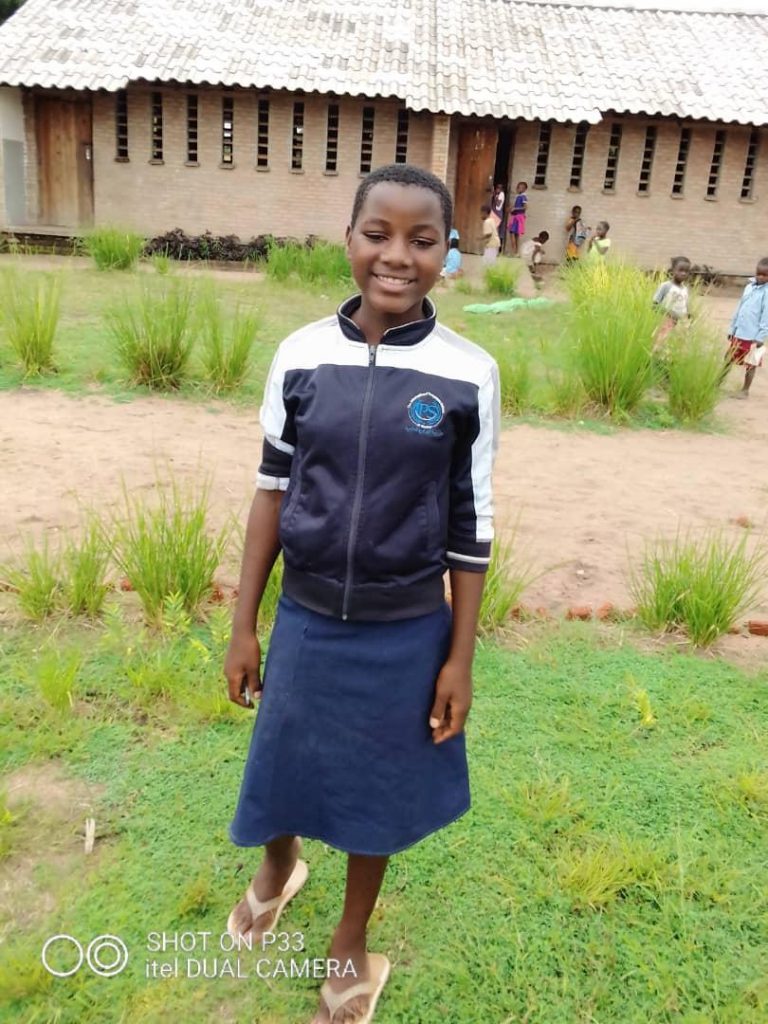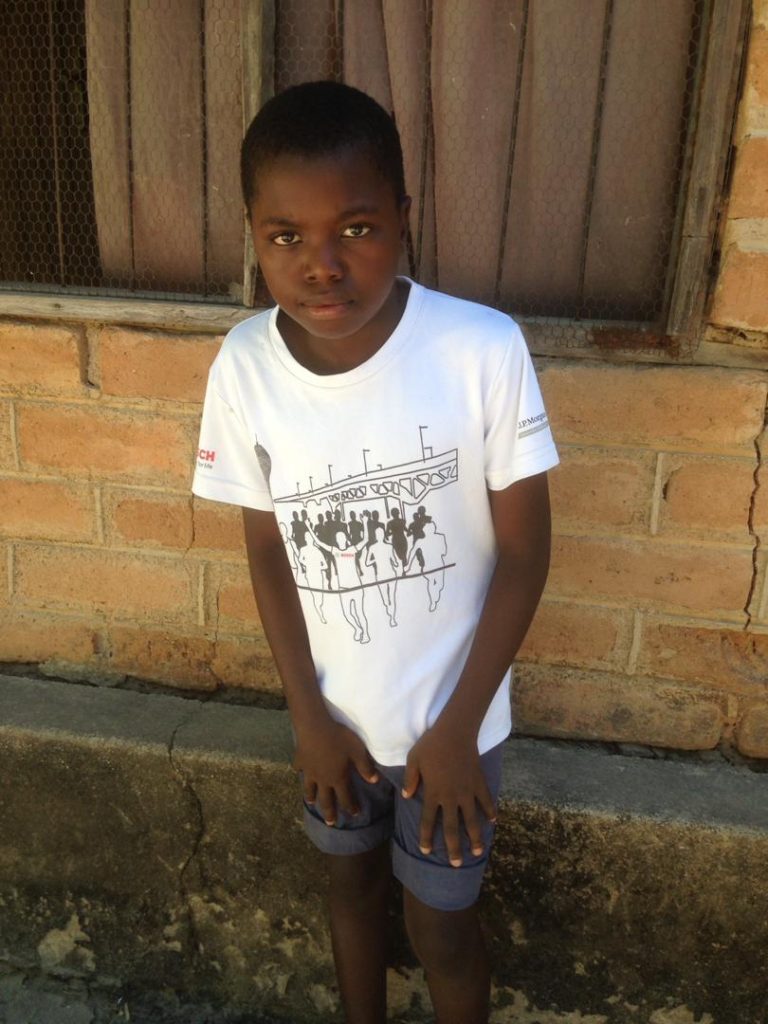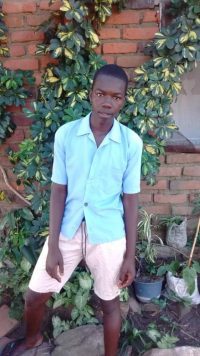Essays from Malawi
Mathematics in Primary School in Malawi

by Rashika Nkhandwe. 13 years old. Chankhasi School
In this essay I am going to explain what we learn in mathematics in primary school in Malawi.
We define mathematics as a study of numbers, shape, and pattern. In primary school we learn different topics like, counting, addition of money, angles and graphs, such topics have their behaviour.
In counting, we count numbers by arranging order by the system of ascending and descending order. From the smaller number to the bigger number and the from the bigger number to the smaller number.
The importance of mathematics is that we know how to calculate money in different places like markets, banks and even at home. The arrangement of numbers in the order also helps us to know which number is bigger and which number is smaller. In banks we need to know how to count money.
Angles which we learn in mathematics help us to know how to build houses and bridges. Angles also help when people join military service. For example, soldiers to shoot a gun they target angles. Angles also help players in the football field.
Graphs learnt in mathematics help one when he/she becomes a doctor or nurse.
Learning mathematics in primary schools in Malawi especially in rural areas has so many challenges. The big challenge is theory. Mathematics always go with proof. That means one has to know and see what is happening. Most schools especially in rural areas do not have mathematical instruments like scientific calculators and many others. Lack of these materials make students not enjoy and understand mathematics.
That is why if one asks a student about what is a difficult subject here the obvious answer is mathematics.
So it’s my appeal that government should provide mathematical instruments in every primary school.
Agriculture In Malawi by Tadala Banda

13 years old, Chankhasi School Malawi
This essay explains about Agriculture, especially what we learn in primary school in Malawi. In agriculture we cover many topics but here I will only explain more on soil composition, irrigation, fish pond and animal husbandry.
Although these topics are taught in primary school they are also covered in secondary school but there it is in more depth.
Soil composition. In this topic we learn that soil is made up of organic and inorganic matter, soil water and soil air. This topic helps a student to know the best soil that can suit different types of crops.
In Malawi there is a problem that most people who go to school do not become farmers. Most farmers do not have knowledge of soil composition. This problem leads to low agriculture production.
Another problem is that most lessons on this topic are just taught in class, learners do not go to the field to see this soil composition.
So the government of Malawi should find a way to teach most farmers about soil composition. The government of Malawi should help learners especially in schools in rural areas to do practical work.
Another topic we learn is irrigation. In this area we learn different methods of irrigation and the importance of irrigation. Although we learn a lot in this topic, the problem is that most of the students after school do not practice that. Another problem is that lack of material for irrigation fails the program.
Our school, Chankhasi, is very close to the lake Malawi, just 200 meters. We also have rice gardens but we only learn it class not seeing how this is done.
Another topic is fish pond. In this area we learn how to raise fish, we also learn how to construct a fish pond and different materials we use.
The problem is that we only learn this in class. We only see a photo on a page of the book, but we do not practice it. If the government constructs fish pond at every primary school that will be helpful.
Another topic is farm animals. In this area we learn more about animals that promote agriculture produce in Malawi. Although we have knowledge in this area most people in Malawi do not have animals that can help them.
In this essay we have seen the helpful topics we learn in Agriculture. The problem is that most of the work takes place in class, not in the field. My advice is that starting from primary school agricultural subjects should be taught both in class and the field.
If this is done, Malawi will be a hunger free nation.
Weather in Malawi by Ronald Mvula

Aged 14 years
Chankhasi Primary School, Malawi
This essay talks about weather in Malawi and it’s effect.
Weather is defined as a daily condition of a particular place for a short period of time. Weather in Malawi is under summer and winter.
August, September, October, November, December and early January are very hot and sunny months while April, May, June and July are very cold, windy and cloudy months.
End of January, February and March are rainy months.
Weather in Malawi sometimes cannot be reliable. This affects agriculture production. For example, rain may start as early as October and ends as early as February . Sometimes may also start late and ends early.
Malawi depends very much on rainfall for its agriculture produce and agriculture is a main source of our economy. And when rainfall does not start at right time and ends at right time agriculture produce will be very low. This leads to hunger in many families. The country also loses money that it gets from the same.
In winter season, especially March, April, May, people experience coldness, but sometimes they may also experience hotness. So here one can see that it’s very difficult to predict weather.
Weather in Malawi affects education. Children who like hot conditions do not often go to school when there is high cold condition.
Many learners do not attend classes. If they attend they have to come very late or cover themselves with sweaters.
In the hot season learners concentrate very little when it comes to studies while in the cold season learners concentrate very much. Looking at this situation the school management has to make sure that every child who comes to school needs to have a sweater.
In other districts people also like cold conditions. When hotness comes they do not feel comfortable.
In hot conditions people suffer from malaria very much while in cold conditions they do not suffer from malaria very much.
So here we can say that malaria is a big problem where temperature is very hot unlike areas where temperature is very cold.
In Malawi in the months of June, July and early August people experience south-easterly wind (mwera wind). This is a very strong wind.
The good side of this wind is that the clouds it accumulates when blowing bring rainfall sometimes. This gives hope to crops which are planted late due to late start of rainfall.
The bad side of it is that it kills many, especially fishermen on the lake Malawi.
In this essay we have seen what weather in Malawi is like, its effect on education, economy and lives of people.
Comments are closed